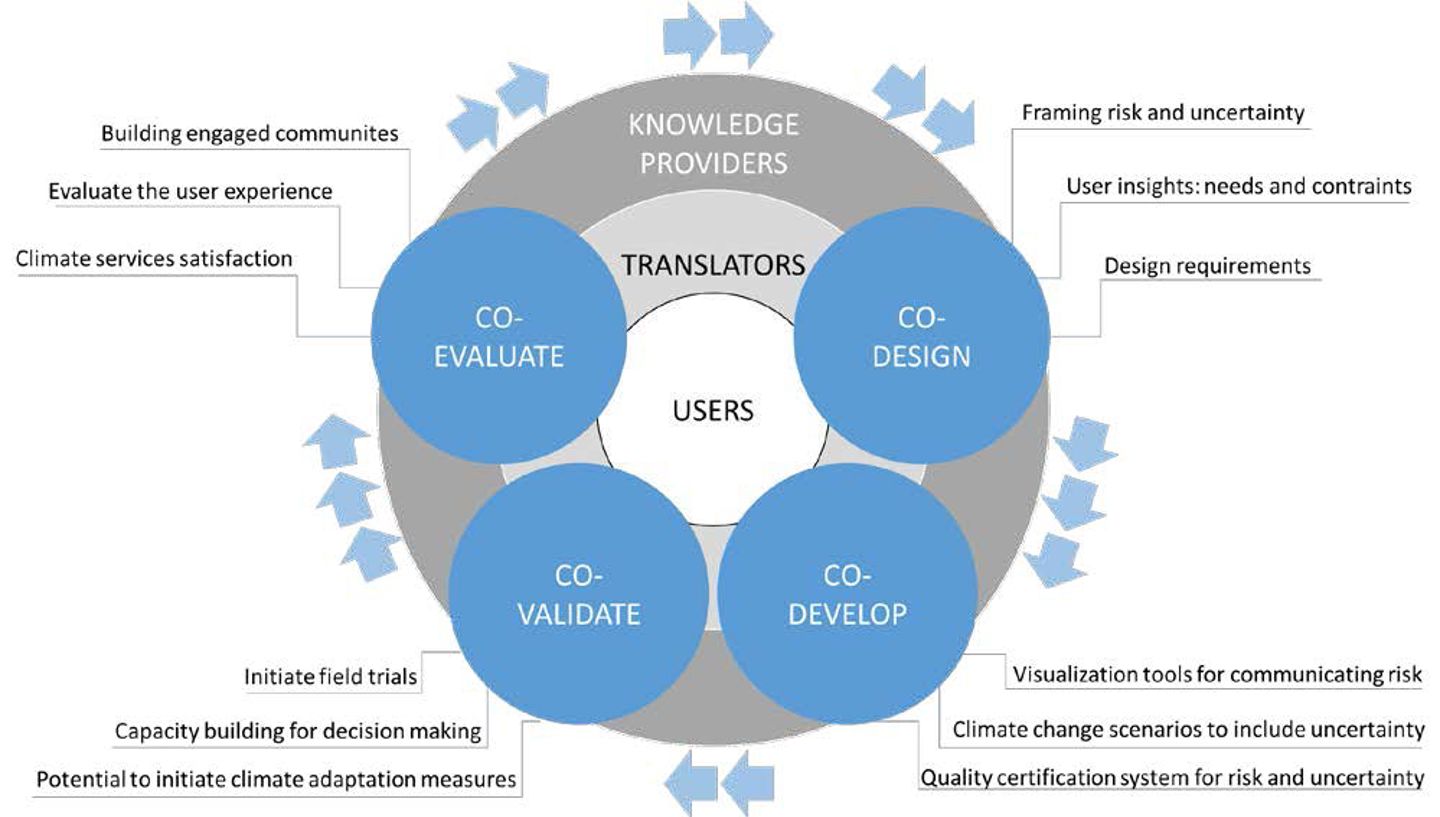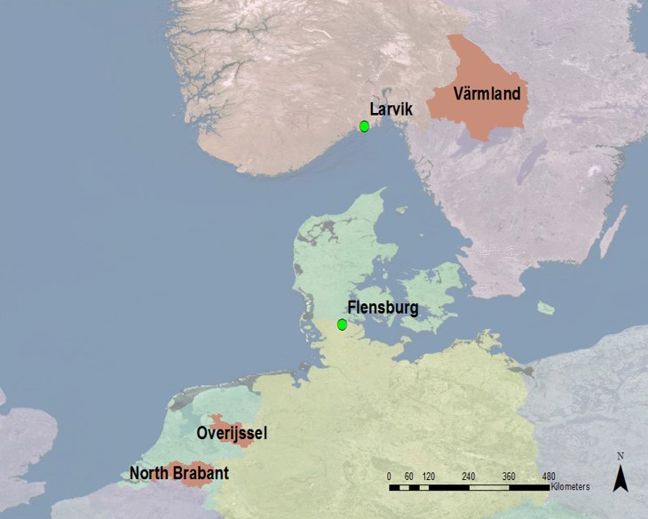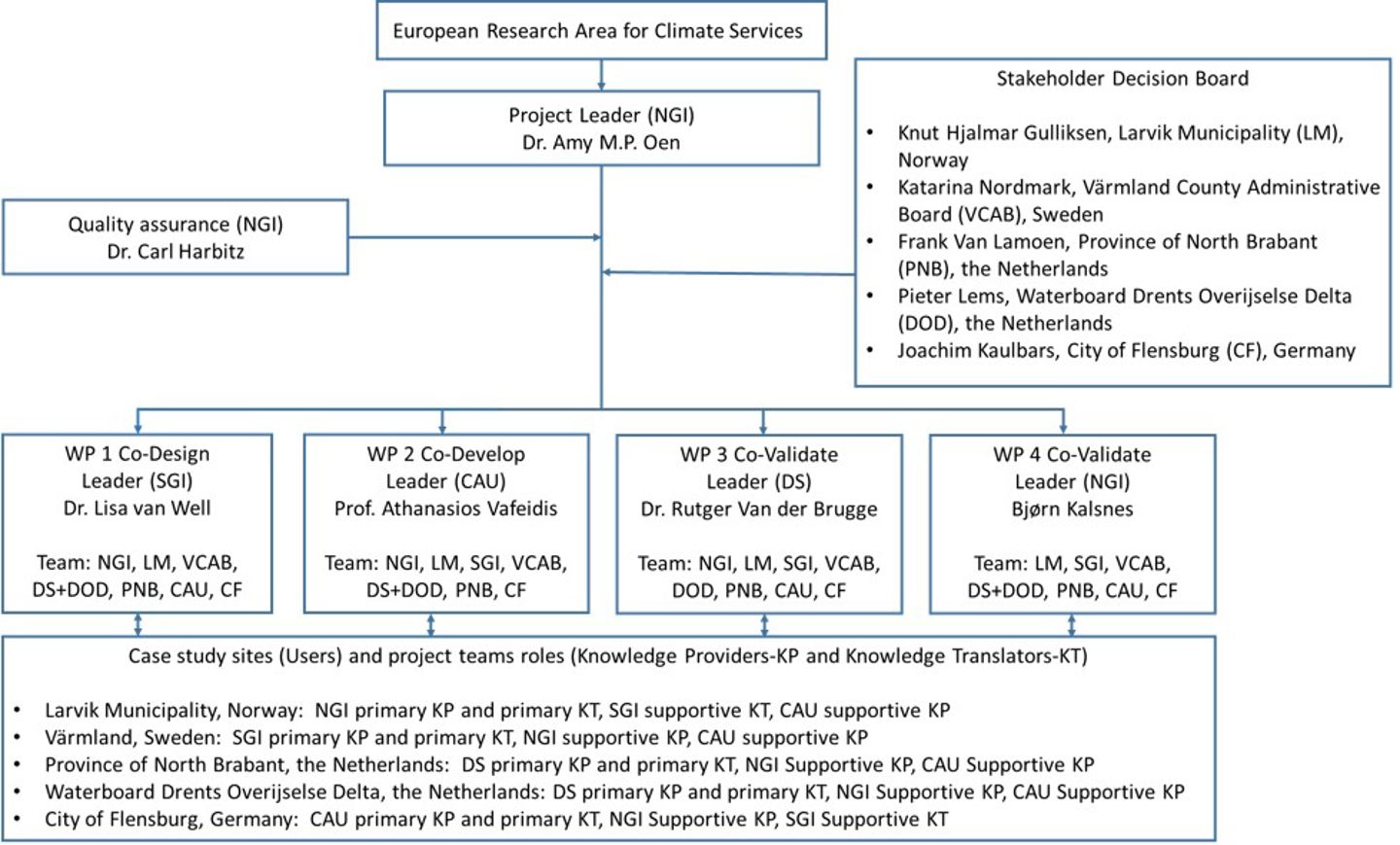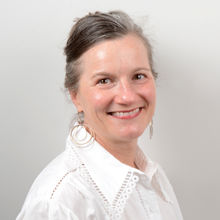******************************************
Deliverable report D5.4 "EVOKED Framework methodolgy guide" is now available.
It is also included under "Reports and publications".
******************************************
EVOKED places the user's knowledge needs at the forefront as the driver for further specification of climate data, enhancing the value of climate data and subsequently improving the interface between the climate science community and policy makers with regard to adaptation measures to address the impacts of climate change.
Each step in the EVOKED framework methodology adds value to the service chain to generate synergy and innovation with the final result greater than the sum of its parts:
- Beginning with a user-centered design ensures that the needs, wants, and limitations of a potentialBeginning with a user-centered design ensures that the needs, wants, and limitations of a potential product or service are placed at the forefront (WP1 Co-Design).
- Transforming design to developing visualization tools and climate change scenarios generates new ideas and encourages knowledge exchange between our partners to better understand risk and uncertainty (WP2 Co-Develop).
- Validating assumptions on climate adaptation measures and their implementation using a collaborative modeling process will facilitate the joint formation of negotiated solutions, increasing ownership and acceptance (WP3 Co-Validate).
- Assessing user satisfaction provides feedback to bridge the process-content gap to improve each step in the EVOKED framework and ultimately help build engaged communities (WP4 Co-Evaluate).

EVOKED framework and the Living Labs user initiated feedback-loop to translate the risk and uncertainty of climate knowledge to enhance the quality and relevance of climate services.
In order to overcome the generic barriers of climate adaptation at the global scale, EVOKED will be initiated at local and regional case study sites in Norway, Sweden, Germany and the Netherlands. The EVOKED project team is already participating in studies at these case study sites and therefore these preliminary studies will provide a point of departure for the EVOKED framework methodology. The end-users have also identified specific areas where EVOKED can enhance the value of their ongoing climate adaptation processes.


- Larvik, Norway:
The knowledge needs and the perception of risk and uncertainty in Larvik municipality will be further explored to improve the visualization of climate data for the local authorities as well as the community of Larvik.
- Värmland, Sweden:
Finding ways to communicate the integrated risks associated with a changing climate and bring together different experts in order to improve the knowledge capacity of different target groups.
- Province of North Brabant, the Netherlands:
Improving the access and applicability of climate knowledge by using the experiences and results from the stakeholder sessions in the building of a climate knowledge portal.
- Drents Overijselse Delta, the Netherlands:
Learn how (and to what extent) the collaborating governments are able to shape the preparedness of communities at risk through effective communication strategies.
- City of Flensburg, Germany:
Support in assessing vulnerability and in exploring potential adaptation options that are less engineered and subsequently more acceptable for stakeholders.
The main impact of EVOKED is to enhance the capacity of our partners as well as the wider community where risk and uncertainty in climate knowledge is translated to usable and relevant products such as visualization tools (based on e.g. GIS or graphic design) and climate- and socio-economic change scenarios. This translation will improve the decision making processes and the implementation of climate adaption measures around Europe.
A second impact of EVOKED is the establishment of the climate services market within the countries of the project partners and a plan for potential transferability to the European market. Thirdly, the successful demonstration of the EVOKED approach at the case study sites will be translated to private enterprises and subsequently explored how to initiate the development of climate services for the business sector.
Work Package Description and Added Value
EVOKED's research activities are organized in four Co-production Work Packages (WPs) that mirror the EVOKED framework shown in the figure above. The four Work Packages are described under the tab "Sub-Projects" (see on top og this page).









